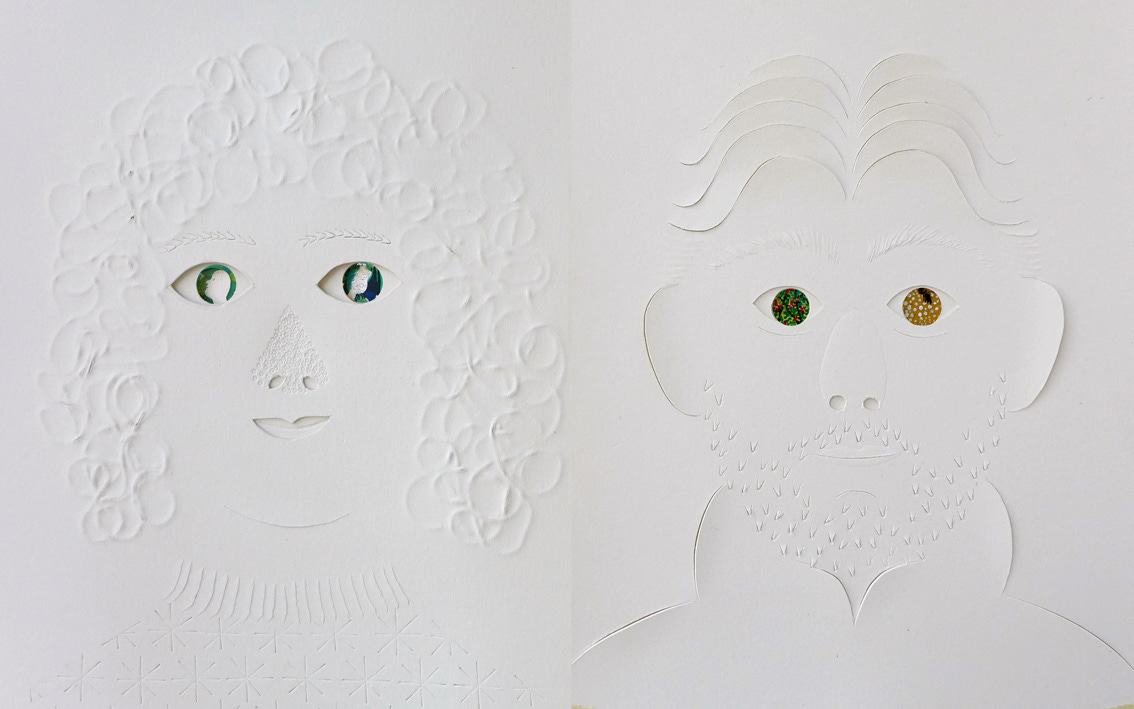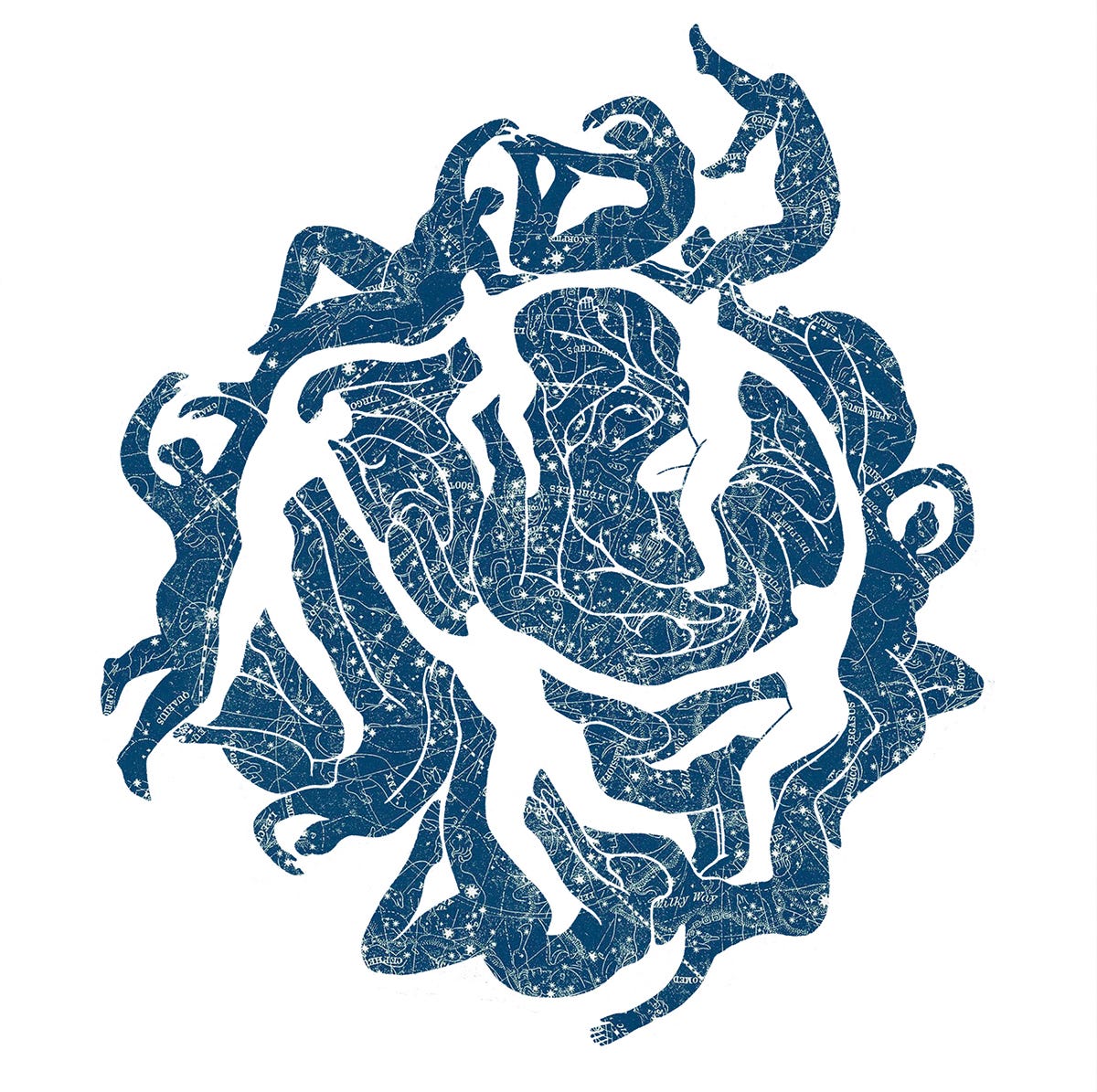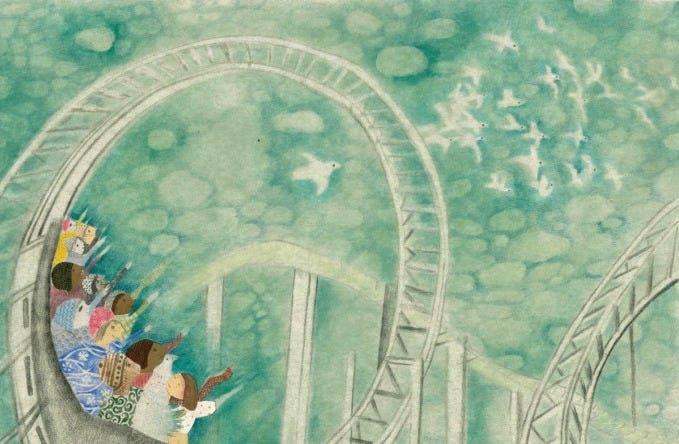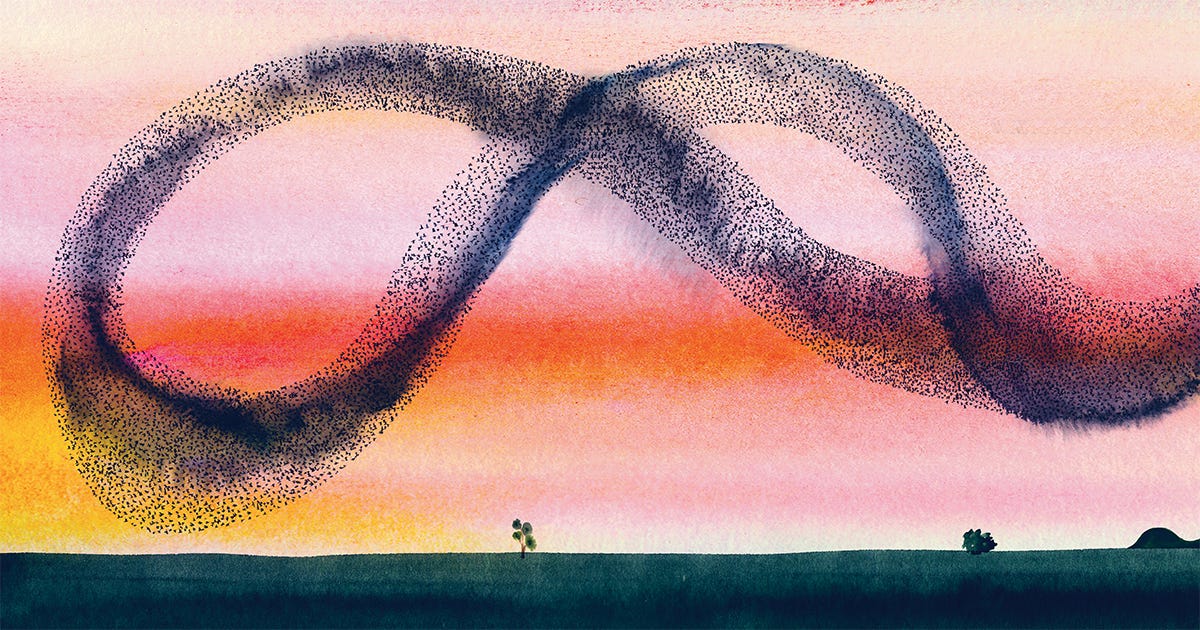Unsettledness: A philosophy for democracy and flourishing
We need a philosophy of unsettledness—a lens that embraces messiness, impermanence, and paradox as sources of vitality and possibility
In moments of collision between the world we imagine and the world we observe, we are confronted with mystery and paradox. These are not obstacles to be overcome but spaces in which democratic life and human flourishing unfold. We need a philosophy of unsettledness—a lens that embraces messiness, impermanence, and paradox as sources of vitality and possibility.
A few Tuesdays ago many of us had our images of the world shaken if not outright ruptured—and with it the irrepressible question: Is this world a much less kind, must less caring, much less accepting place than we thought?
In the frantic and ennervating search to reunite our images of the world with our observations of it sometimes we double down on what we believed before, refusing the evidence of experience. Yet this impermeability both creates suffering (holding to that which we cannot change) and denies the fundamental fact of change of the world.

Collision and conflict
November 5 in the US felt like a collision—between the world I thought, or hoped, existed, and the one the evidence of (registered, turned out) voters claimed existed. There is a palpable violence when one's worldview is discordant with what one observes, and I've been experiencing the multiscale aftershocks in the weeks since. But it shook loose in me an idea long held but never articulated within me: the history of culture is the history of collision. Anthropology is the result of cultural and environmental collision. History, too, is the result of collision—cultural, social, political.
Moments of cultural or political collision—when our hopes clash with reality—are a defining feature of democracy. The single most difficult feature of life in a democracy, Danielle Allen writes, is that democratic citizens are empowered only to be disempowered. Allen calls this democracy's "problem of loss."
How we navigate the disempowerment is the psychological necessity that democratic citizenship must address. Before the 1960s the solution was a two-pronged approach of acquiescence and dominance where one group bore the majority of loss and sacrifice. Yet this is a breeding ground for distrust. If culture is the residue of collision, then democracy is its choreography—generating trust out of distrust and transformation out of loss. It is a matter of understanding the culture that is being generated out of the collision; culture is, after all, an 'institution' of trust. Parker Palmer named it, "[We must] re-learn how to hold culture’s tensions in a life giving way."
What we need now is a philosophy to help us navigate these collisions without seeking resolution, to stay with the questions, and to imagine new relational dynamics—a philosophy of unsettledness.
The philosophy we have
I often encounter people who think philosophy is a trifle, an activity performed in an ivory tower, with inaccessible language, and without traceable impact in our world. It is a grave and deadening mistake, and perhaps also an artifact of the philosophy much of the Western world silently accepts and even takes for granted. Philosophy matters; the premise is simple: philosophy shapes cultures, cultures shape values, and values shape history.
Since the Enlightenment, much of the world has silently held and followed a philosophy of progress—the world is understandable, controllable, and subjugated to 'man'*.
Often acting below the level of consciousness, it breeds a troubled and troubling relationship to the world, and it needs to change.

The Enlightenment ideal of progress promised mastery over nature and society. Accordingly, we believe in settledness, we value the determined and strive resolutely and unquestioningly toward it. And history bears out those actions. But there are volumes written on this topic and while essential reading, our focus will be on the disconnect between the belief in settledness and the fact of the world.
A philosophy of settledness, rooted in knowing and controlling, must give way to one that embraces uncertainty, change, and relationality. This is not merely a philosophical shift; it is a necessity for navigating a world that defies simple answers.
The fact of change
The fact of our world is change. The fundamental concept in Buddhism, as in many of our ancient wisdom traditions, is impermanence: all things are in a constant state of change. Yet this insight seems to fade as quickly as it comes, so we learn over and again that it must be about the journey and not any ends. In her "Speech to the Young" poet-activist Gwendolyn Brooks connects this fundamental fact with how it calls us to live,
Live not for Battles Won.
Live not for The-End-of-the-Song.
Live in the along.
We may convince ourselves that our society, indeed each of ourselves, is about a realizable future of perfect, blissful equality and pluralism, some place that we can arrive at and the work ends, but this is a convenient belief and one at odds with the world of continual change we experience every day. Democracy, as life, is about messiness and engaging with it. It is a continual negotiation and renegotiation, involving more voices at all times. Democracy will never be efficient and is impossible in any philosophy that places efficiency and monotonic progress at its center. Democracy is impossible within a philosophy of settledness, an epistemology of knowing.
In the world we have created with its unprecedented rates of change, we need to complicate our accepted philosophy of settledness, to examine it, to question its foundations, to understand the assumptions we blindly make in being governed by this way of being in the world.
Towards a philosophy and epistemology of unsettledness
As a scientist, I willfully engage in this process of trying to understand the world, but I do so with a vocabulary of mystery. It is a false dichotomy, a limiting binary, to believe that either the world is completely knowable or inherently unknowable. Falling into this simplistic thinking and landing on either side has the same result: determinedness and inaction. But embracing the nonduality facilitates change, action, becoming. And it is precisely this space between striving for more knowledge and acknowledging unknowing that I think is foundational to a new philosophy we need for now and for revitalizing our democracy: a philosophy of unsettledness.
If the grammar of determinedness is the statement, then that of unsettledness is the question. Asking a question is about being willing to be vulnerable, to admit of not knowing, to anticipate that your own silence will follow, to welcome what may change you. Precepts of the philosophy thus emerge: mystery, vulnerability, the art of asking, listening. And with them normative prescriptions: create mechanisms and structures for the system to remain permeable and to have the capacity to change itself. "If I’m interested in doing anything at this point it is in creating a form of culture or knowledge or religion which does not view itself as replacing or better then another one, but contains within itself a way of undoing itself," wrote Chilean biologist, neuroscientist, Buddhist, philosopher, and complex adaptive systems pioneer Francisco Varela.
It is a philosophy of muscular striving toward new and extended knowledge. It contains a different expectation, not of some illusory future state of rest when our work is done (nature calls that state 'death') but of forever not knowing and moving through periods of relative knowledge and un-knowledge. This philosophy appeals to striving and curiosity, the lifeblood of more capacious imagination (and we need imagination now, when our collective imagination seems so inadequate). Margaret Mead and James Baldwin in one of the most prescient conversations of the 20th century marvel that we have no word for the impossibility of knowing something. Perhaps whatever that word is rhymes with unsettledness.
To embrace unsettledness is to cultivate a mindset of exploration rather than exploitation. It asks us to resist the pull of certainty and instead dwell in curiosity, asking better questions and holding space for ambiguity.
The shift unsettledness proposes is toward an intent of change itself—desiring not to exploit but to have one's self, the system, change. In that shift of intent, a change of philosophy and epistemology, the means becomes exploration. We search widely, in the unknown. There are no perceivable boundaries. It is mystery that we engage with. That is challenging because we are constantly amidst the unknown, without the familiar supports of knowing, of 'expertise,' of concreteness and legibility. Wisdom is, after all, what remains when what’s known, that formal system of any given moment, is broken.

In this moment, it is nourishing to understand this as a founding principle for democracy. Democracy thrives not on resolution but on generative tension. It flourishes when we treat paradox as a site of discovery rather than failure and when we prioritize relationality over individual certainty. Democracy is always unfinished and its becoming is an unending series of engagements with paradox, continual figuring. We must hold mystery, not as a temporary state, but as the desirable state itself. We need a willingness to be beings of change and contradiction and paradox. That is what structures this philosophy—it centers mystery and the vulnerability and comfort outside of resolution that are required for a flourishing democracy.
Parker Palmer prefaces his list of needed civic capacities by stating that democracy requires a relish for confusion. It is this very engagement with paradox, at the individual and collective levels, that is civics and only from which can we hope for any flourishing of democracy.
There is much the science of complex adaptive systems offers our understanding of democracy. We've written about it, and will do so again. Tina Eliassi-Rad and others in "What science can do for democracy: a complexity science approach" argue for a cross-disciplinary approach to political science that rests on mathematical models of human societies, built with tools from statistical physics, dynamical systems, complex networks, and game theory.
What supports the explorative mode of being? What sustains unsettledness as a way of navigating the world?
'Seeing' it
We need nourishment to be these kinds of beings. That nourishment is quite different than that which serves a philosophy of progress and determinism. Part of that nourishment is found in mindfulness itself. We have to continually remind ourselves that our discomfort and our grappling is not a sign of failure, it is a sign that we our living at the edge of our imaginations, says actress and activist America Ferrera. Yet, part of the nourishment must also meet the representational conceptual part of our thinking. We need to 'see' it and that will be quite different than the ways we make things legible now (accolades and recognition and status and security—self-serving, ego-raising sustenances).
Language is the means by which a philosophy becomes accessible, actionable, and transmissible; it is how a philosophy can widen the collective imagination. It shapes how we think and what we believe is possible. A philosophy of unsettledness might necessitate a vocabulary for mystery, paradox, impermanence, and relationality.
Metrics operationalize philosophical principles and vocabularies, transforming abstract ideas into measurable, actionable insights. The metrics we need for a philosophy of unsettledness will be collective, not always comprehensible or apprehensible by the individual. Democracy is the system we imagined that is capacious enough to hold this—it requires knowledge that is only collectively held and privileges collective intelligence as the ultimate form of knowledge, the site of which the world's complexities are apprehensible. Perhaps the quality of questions we ask could themselves be a legible artifact of living in an unsettled way. Austrian poet Rainer Maria Rilke might have known something about this when he made his great clarion call for unsettledness, "Do not now seek the answers, which cannot be given you because you would not be able to live them. And the point is, to live everything. Live the questions now. Perhaps you will then gradually, without noticing it, live along some distant day into the answer."

Network science may be a source of making legible unsettledness as a design principle for lives and societies. Indeed it is the de facto quantitative representation for what might be considered analog or subsidiary problems: describing complex adaptive systems and social systems (e.g., friend networks, the network of scientists and scientific knowledge). Of course, qualitative methods from anthropology, sociology, and political economy have been and will remain critical.
This can be a part of a rich history of kindred attempts to make the philosophy of a society legible in measurable outcomes. In their pioneering attempt to bridge moral philosophy into developmental economics1, political philosophers Amartya Sen and Martha Nussbaum also rely on network measures, "Capabilities [the space for the opportunity for particular actions] must be studied not in isolation but in their network of relations to other capabilities; capabilities are not isolated units but a set of opportunities that shape one another and most ultimately be realized as a set." Their work was a response to the widely recognized inadequacy of metrics like Gross Domestic Product to provide meaningful information about the question of what a person is able to do or be; a question much closer to flourishing than the goods a country produces.
Imagining the future
We need to nourish these attitudes and this philosophy, sustenance for remaining outside of resolution where generativity and change can occur. I argue that we have created some of these functions and have called them civics—ways of participating together in something—and community.
For years I've been studying the ways that our lives online show up in and shape our lives together; the health of our digital spaces (only the most obvious of which is our online social media like X and Facebook) and the ways they support or deny healthy relationality. I recently had a conversation with Talia Stroud, co-founder of the Civic Signals Initiative, and wise and winsome voice on the ways digital media is shaping our societal discourse, organization, and relationality.
It is much easier to tear down than it is to imagine what could be. Civic Signals' constructivist approach is a lesson in the kind of mentality we should be adopting together. NK Jemisin calls it worldbuilding. And it is in this approach that the throughlines to how we create a better society begin to appear. International peacebuilder John Paul Lederach has a concept of 'critical yeast,' small groups of people with a quality of relationship and a continual and spacious attention to the web or their relationships. That quality of connection and attention to the interconnections is unending, as open as the formation and reformation of the network itself. In the notion of critical yeast converge the network science metrics and the imaginative approach—a network of relationships emerging what could be. In fact, John Paul introduces critical yeast in his treatise on moral imagination.

A worldbuilding approach paired with a philosophy of unsettledness emerges new structures and activities to cultivate flourishing across scales.
To mature all of this into a theory of social change we will need to connect the philosophy, vocabulary, metrics, and functions into a coherent system of action, offering a pathway to societal transformation.
Join us here as we will be maturing the ideas together and imagining the solutions.
Democracy and the self
Democracy, like life, is an unfinished project—a continual becoming. It is not an endpoint or a state of rest but an ongoing negotiation of paradox, contradiction, and change. To flourish, we must nourish practices of unsettledness: cultivating mystery, fostering relationality, and embracing the inefficiency and messiness of collective life. As Rainer Maria Rilke reminds us, we live not for answers but for the questions that move us forward. Democracy’s vitality, and our own, lies in this embrace of the unknown.
We began with Danielle Allen's words that the single most difficult feature of life in a democracy is that democratic citizens are empowered only to be disempowered. As a result, democratic citizenship requires rituals to manage the psychological tension that arises from being a nearly powerless sovereign. Because loss is an integral and regular part of life within democracy, care, recovery, reconciliation are inextricable capacities for all individuals within it. These capacities share a core dependence on connections and relationality—their flourishing is defined by their interconnectedness; their flourishing requires plurality; both are countervailing forces to society's grasping for order and control and certainty; and finally neither can be defined by any ends.
There is no end to history, no state of rest for democracy.
Danielle Allen, Justice by Means of Democracy
There is no end point, only a becoming and unsettledness.
an approach to comparative quality of life assessment and for theorizing about social Justice and holds that the key question to ask when comparing societies is “What is each person able to do and to be?

Hi, Ryan -- thanks for this article. It started out great:
"A philosophy of settledness, rooted in knowing and controlling, must give way to one that embraces uncertainty, change, and relationality."
and continued throughout. Much appreciated. I curated an exhibition called "Uncertainty" some years ago, and wrote and essay for it. In case you'd like to take a look,
Exhibition essay: https://stephennowlin.com/essay/uncertainty.pdf
Exhibition video: https://player.vimeo.com/video/207343937
All the very best,
/stephen